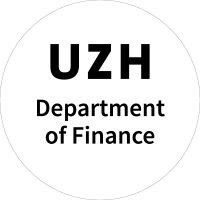
The Center of Competence for Sustainable Finance
@uzh_susfin
The Center of Competence for Sustainable Finance at the University of Zurich
ID: 1217142294865960964
http://www.sustainablefinance.uzh.ch 14-01-2020 17:55:31
79 Tweet
324 Followers
48 Following

The journal Nature @nature "will soon appoint an economics editor." Wise decision. Economics needs to cross disciplinary borders and open up again. nature.com/articles/d4158… Letitia FT Federico Levi Irene Monasterolo

Join us tomorrow at 3pm! I will be talking with Anna Vergnano about how we should rethink climate policies in the era of COVID-19. The webinar joining link is available here: soas.ac.uk/economics/even… Our next webinars will be run by Sara Stevano and Tobias Franz.



Our Department's #COVID19 #research, analysis and assessment collected and constantly updated. Please check, share and discuss: lnkd.in/d6zkjky Stefano Battiston Marc Chesney Walter Farkas Thorsten Hens Alexander Wagner University of Zurich #bankingandfinance


Financial markets are very short-sighted. #ClimateChange demands long-term approaches, was a point Joseph E. Stiglitz underlined in his keynote speech in January at the launch of #CCSF. His speech is as relevant as ever. Lecture starts at 03:28:00 👉youtube.com/watch?v=5qfNKc…

Fresh ECON Committee Press report asks whether European Central Bank’s legal mandate is adequate to manage the #economic & financial risks of un#sustainable activities. Question has gained new weight in light of #covid19. Kern Alexander among authors. Reading recommendation -> europarl.europa.eu/thinktank/en/d…




Netto 0 by 2030 in #Switzerland is possible, states the fresh Climate Action Plan by Klimastreik Schweiz 🔥 #ClimateJusticeNow. Our researcher #ChristianHuggel was among the advisors of the plan. A definite reading recommendation to gear thoughts to action 👉 #ClimateAction #ClimateCrisis



1/5 Why is key to understanding the role of the financial sector in fighting climate change? Because mitigating climate change will not happen without alignment of financial capital to 2°C objectives. 6th #IPCC Assessment Report Chapter 15 #ClimateChange Stefano Battiston University of Zurich

2/5 What’s the current status? Much more awareness of climate change in finance since Paris 2015. Yet, large investment gap (e.g. too much into carbon-intensive assets). 6th #IPCC Assessment Report Chapter 15 #ClimateChange Stefano Battiston University of Zurich

3/5 Possible reasons for gaps? If the risk perception of high/low carbon assets is similar, there is no incentive for reallocating capital. How can that be if a low-carbon transition is on the way? 6th #IPCC Assessment Report Chapter 15 #ClimateChange Stefano Battiston University of Zurich

4/5 Gaps could close if: ** Financial actors use forward looking scenarios for climate risk assessment. ** Climate policies and national decarbonization plans have sufficient credibility. 6th #IPCC Assessment Report Chapter 15 #ClimateChange Stefano Battiston University of Zurich

5/5 Stated targets (2°C) can lead to very different paths in terms of financial risk, depending on adaptation implementation progress and mitigation policy credibility. 6th #IPCC Assessment Report Chapter 15 #ClimateChange Stefano Battiston University of Zurich ipcc.ch/report/ar6/wg3/



Klare Signale der Politik sind entscheidend, damit Finanzakteure und Unternehmen nachhaltig investieren. Die Machbarkeit der Transition muss ebenfalls gegeben sein, sagt Stefano Battiston The Center of Competence for Sustainable Finance @uzh_bf Universität Zürich am #SGCD22




